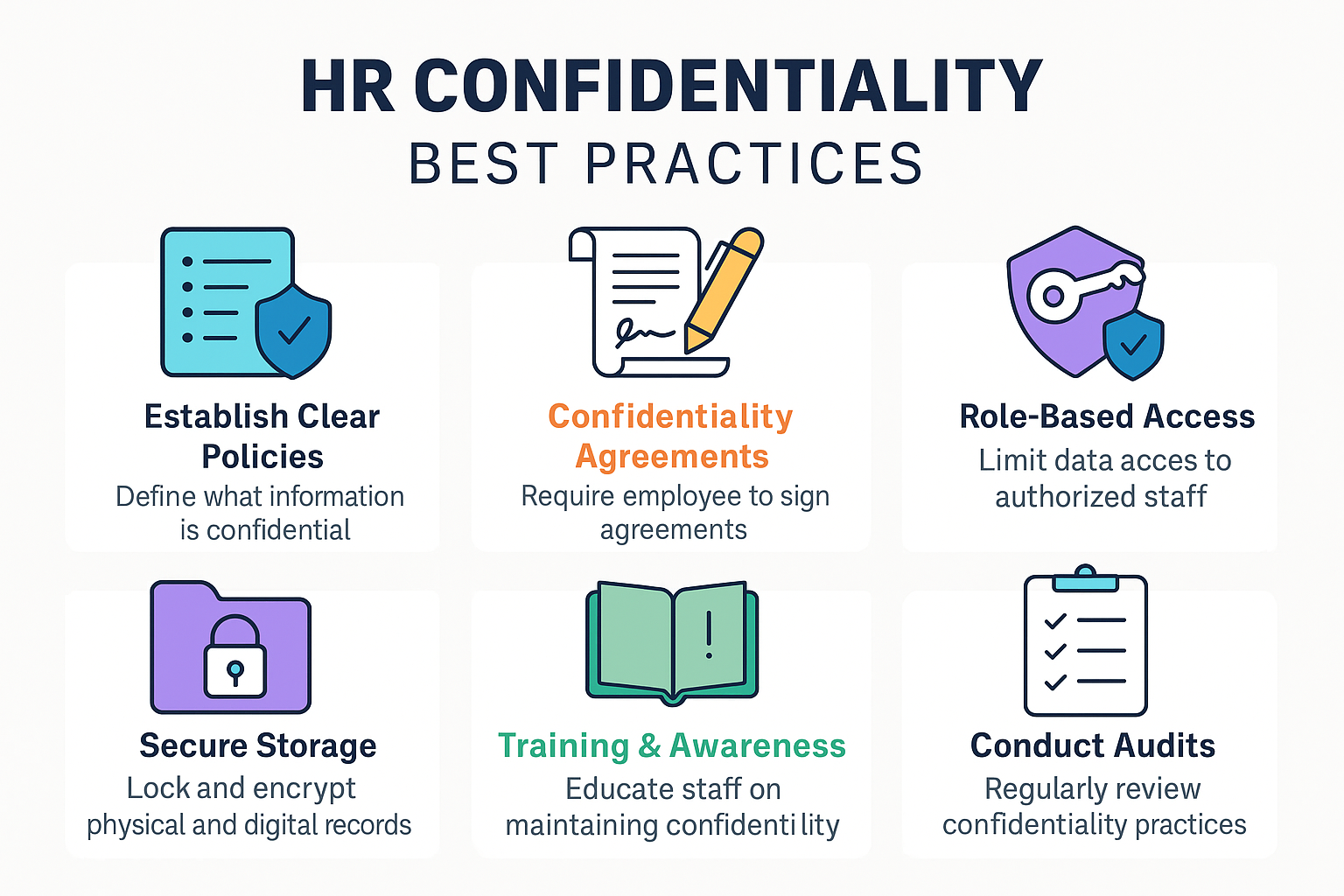Microsoft-Native HR Software Explained for 2026
Learn what Microsoft-native HR software really means in 2026 and how Lanteria simplifies HR by working directly inside Microsoft 365 and Teams.

In today’s evolving workplace, the ability to safeguard employee confidentiality is more than a legal obligation—it's a trust-building imperative. HR professionals are entrusted with deeply sensitive personal and organizational data. Whether it’s handling health-related information or navigating internal investigations, mismanaging this data can damage reputations, incur legal penalties, and erode employee trust.
This guide explores the most effective HR confidentiality best practices in 2025. Backed by up-to-date laws, secure digital systems, and a people-first strategy, these insights will help you protect employee privacy while staying compliant.
HR departments interact with a vast array of personal and company-sensitive data, including:
Misuse or leakage of any of the above can violate regulations and destroy workplace culture.
A solid HR confidentiality strategy is rooted in understanding the legal landscape. Key regulations include:
Proactive compliance with these laws builds trust and limits liability.
A single breach can have far-reaching consequences:
🎯 Ready to upgrade your HR data security?
Explore how Lanteria’s secure, Microsoft-integrated HRIS simplifies confidentiality with customizable access controls, audit trails, and compliance automation.

1. Establish Clear, Updated Policies
Create a well-documented HR confidentiality policy that defines:
2. Use Role-Based Access Controls (RBAC)
Limit access to sensitive data strictly to those who need it. RBAC systems in HRIS platforms like Lanteria’s allow admins to manage visibility at a granular level.
3. Secure Both Physical and Digital Records
4. Train Your HR Team and Managers Regularly
Confidentiality training should be mandatory for:
5. Separate Sensitive Files from General Personnel Records
For medical, disciplinary, and legal documents, create separate, restricted folders or digital compartments.
6. Maintain a Confidential Conversation Protocol
When employees come forward with concerns:
7. Conduct Regular Internal Audits
Periodically review confidentiality protocols. Ensure all employee data access logs are up-to-date and policies reflect new legal or organizational changes.
8. Manage Vendor and Tech Stack Compliance
Ensure third-party tools and service providers comply with GDPR, CPRA, and other privacy regulations. Lanteria’s Microsoft-based integration offers secure data flows and audit-ready reporting.
During employee relations or legal investigations, HR must walk the line between transparency and discretion:
Staying updated on these changes is critical for proactive confidentiality management.
In HR, confidentiality isn’t a bonus—it’s a basic building block of ethical operations. A breach could cost more than just fines; it could destroy your workplace’s integrity.
Using an all-in-one secure HR platform like Lanteria helps streamline compliance, safeguard personal data, and instill a culture of trust across your workforce.
Q1: Is all HR information confidential?
No. Only sensitive employee and business-related data is protected by confidentiality rules. Performance discussions or general feedback may not always fall under strict confidentiality.
Q2: Can HR disclose information without consent?
Only in limited, legally mandated situations (e.g., medical emergencies, legal investigations, or compliance with workplace laws).
Q3: How often should HR update its confidentiality policy?
Annually, or sooner if new laws or organizational changes arise.
Q4: What happens if an HR confidentiality breach occurs?
Document the breach, notify stakeholders, implement mitigation measures, and conduct an internal audit. Consult legal counsel as needed.










